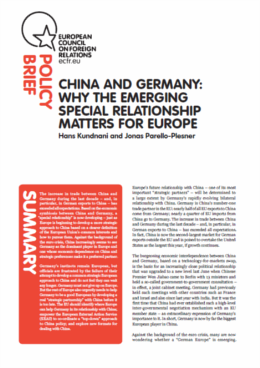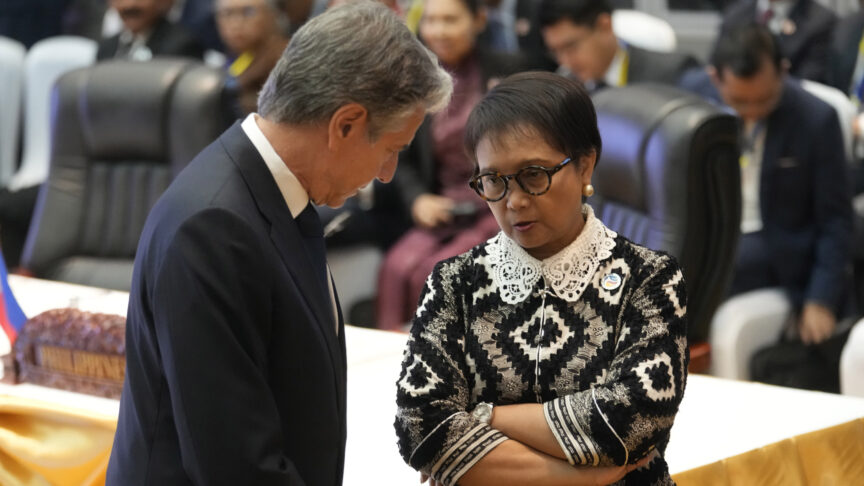China and Germany: a new special relationship?
Why the emerging special relationship matters for Europe
The increase in trade between China and Germany during the last decade – and, in particular, in German exports to China – has exceeded all expectations. Germany is China’s number-one trade partner in the EU and China is the top foreign investment destination for German companies.
Based on this emerging economic symbiosis between China and Germany, a “special relationship” is now developing. But is this trade-based relationship damaging wider European strategic interests in areas such as foreign policy, energy and raw materials, climate change and human rights?
In a new ECFR policy brief, Hans Kundnani and Jonas Parello-Plesner argue that a special relationship between Germany and China is emerging:
- China needs technology and Germany needs markets. Structural similarities and shared economic interests are key for this emerging special relationship which has further intensified since the economic crisis in 2008. But Chinese companies will provide greater competition in the future and trade conflicts are likely to intensify.
- Germany’s approach to China is mostly driven by economic interests and the needs of its exporters. Germany’s foreign policy is based on the idea that economic exchange would lead to political and societal change in China.
- China sees Germany as the most useful country for its economic development. Germany is an attractive partner because of its prominent role in the EU, a similar strategic outlook – but also because of increased German dependence on China.
“The Chinese are thinking about whether a 'German Europe' is emerging from the euro crisis just as we are. They increasingly see Berlin as the place to go to get things done.” – Jonas Parello-Plesner
“Europe’s future relationship with China will be determined by Germany’s rapidly evolving bilateral relationship with China. The danger of this new special relationship is that it could undermine European strategic and economic interests” – Hans Kundnani
The authors argue that the emerging special relationship also matters for Europe and should be developed into a ‘real’ European strategic partnership with China:
- The EU should identify where Europe can help Germany. For example, the EU can bring added value in developing better investment and public procurement rules and it should use its leverage in negotiating access to raw materials.
- A joint EU approach towards China requires better coordination among member states and the involvement of EU institutions. The EU should also explore new formats for dealing with China.
- EU member states should empower the European External Action Service (EEAS) to develop a new “top-down” approach to China. The High Representative should co-ordinate Europe’s China policy in areas such as trade and climate change.
Contact details:
- Jonas Parello-Plesner: [email protected], +44 (0) 7787 431 820
- Hans Kundnani: [email protected], +44 7826 844 124, twitter: @hanskundnani
Key facts:
- The strength of ties between the two was demonstrated in June 2011, when Wen Jiabao’s visited Berlin, along with 13 ministers, and held a joint cabinet meeting.
- Nearly half of all EU exports to China come from Germany.
- Nearly a quarter of EU imports from China go to Germany.
- During 2010 Germany’s trade with China grew by 34% to $181 billion. China is now the second largest market for German exports outside the EU.
- Chinese demand is especially high for German machinery and cars (eg China is the biggest market for the Mercedes ‘S’ Class large saloon cars, and Chinese officials are driven around Beijing in Audis).
- Germany has tried to develop a strategic European approach to China, but its efforts have failed to bear fruit.
This paper, like all ECFR publications, represents the views of its author, not the collective position of ECFR or its Council Members.
The European Council on Foreign Relations does not take collective positions. ECFR publications only represent the views of their individual authors.



